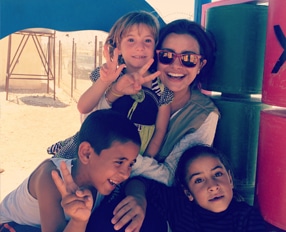
In the context of FPSC cooperation volunteering activities, young Spaniards have moved to the Middle East, specifically Jordan and Lebanon, to perform volunteer work, supervised by the Foundation, in addition to facilitating a deeper understanding with the reality of the destination countries have been allowed to have contact and work directly with the public.
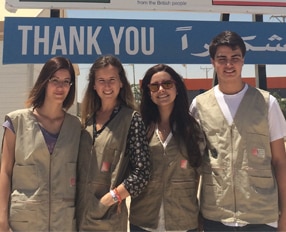
So, during the summer, five volunteers, students from the University of Navarra with studies related to cooperation with an interest in the Middle East, and thanks to a collaboration agreement between the FPSC and UNAV have travelled to Jordan; on the other hand, another group of Spanish volunteers, have gone to Lebanon. All of them have dedicated their time to helping the Foundation, making a direct work with the target population, and some also from the own office with administrative tasks and receiving from the FPSC staff training in notions of cooperation.
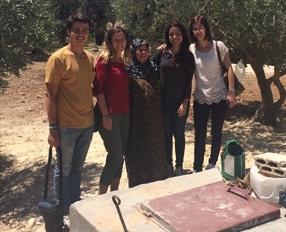
In Jordan, young volunteers, students from the UNAV have visited the Syrian refugee camp Zaatari, knowing first hand the FPSC centre where physiotherapy sessions are done to children with disabilities and support for mobility is provided. They also visited some areas where activities are developed to improve the management of water resources, as Balqa.
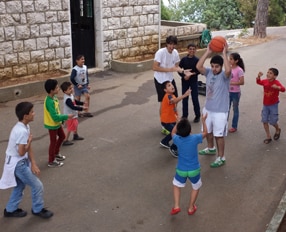
Moreover, in Lebanon, during the month of July, FPSC Spanish volunteers for the second consecutive year, and along with ALDEC Lebanese volunteers, local partner of the FPSC in many of their projects, helped Caritas Lebanon Migrant Centre (CLMC) in supporting the Syrians and Palestinian refugees. Restoring homes or recreational activities for the little ones are some examples of the work of young people in the Palestinian camp Dbaye (north of Beirut) and the collective shelter village Bhersaf (Mount Lebanon area) this summer.
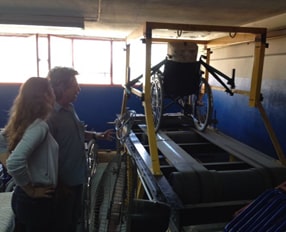
Besides this activity, we had the opportunity to visit the Tanail Centre Arcenciel, FPSC local partner in the agreement to improve the social integration of disabled people in the Middle East through accessibility. This centre located in the west of the Bekaa provides accessibility, mobility, health, social, youth, educational and environmental programs.
The experience of the volunteers was not only professional, but also, as they have said, “they have known and understood a little more the reality of a culture so close and so distant at the same time.”

